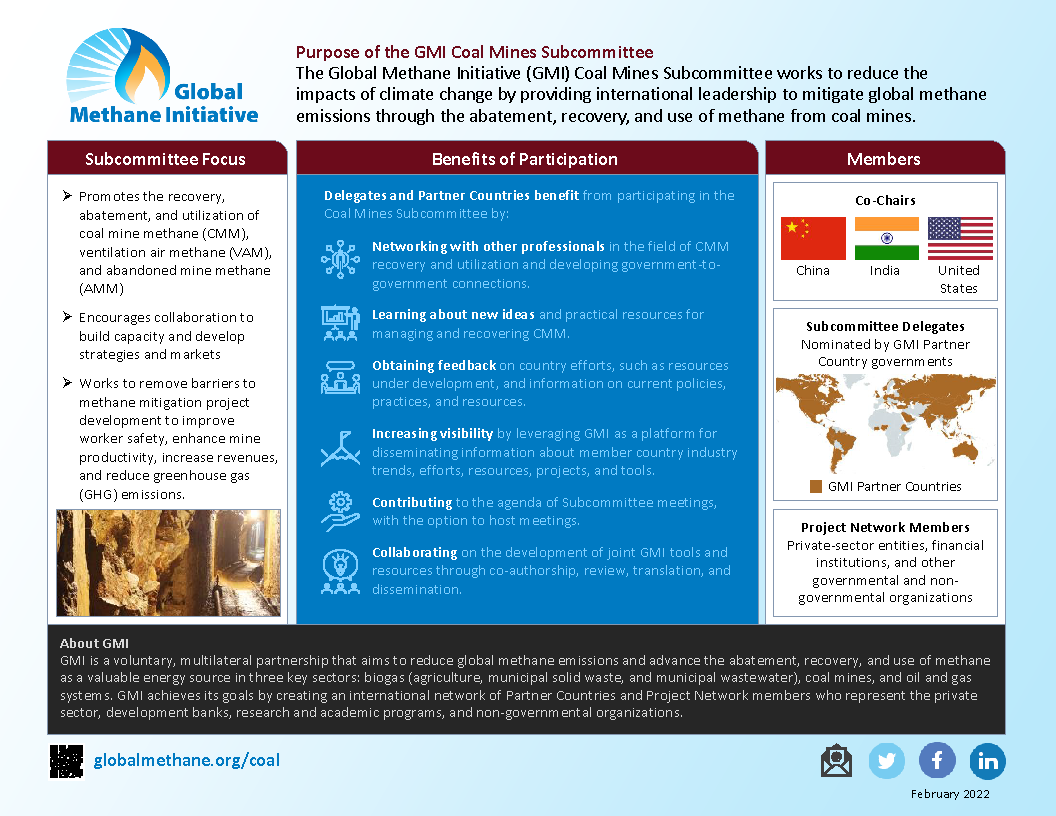Featured Resources
Check out these featured resources. For a complete list of available coal resources, including technical documents, presentations, and tools, please visit the resources page.
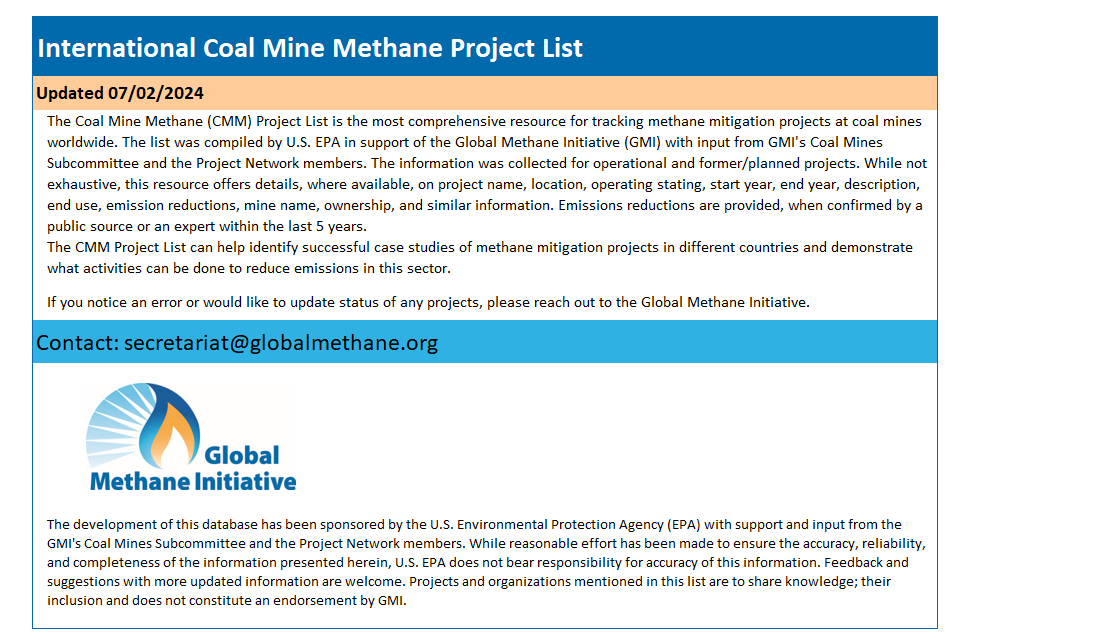
International Coal Mine Methane Project List
This Excel document provides comprehensive information on approximately 500 coal mine methane recovery and utilization projects at coal mines worldwide, including projects that are operating, in development, or planned.
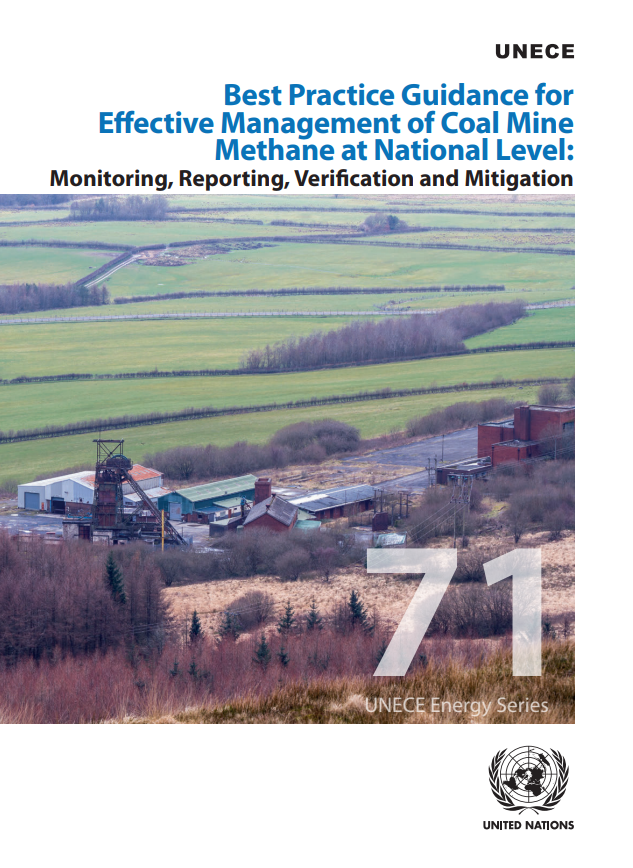
Best Practice Guidance for Effective Management of Coal Mine Methane at National Level: Monitoring, Reporting, Verification and Mitigation
GMI led the development of this resource on monitoring, reporting and verification (MRV) of methane emissions from coal mining. The report, Best Practice Guidance for Effective Management of Coal Mine Methane at National Level: Monitoring, Reporting, Verification and Mitigation, was published jointly with the UNECE Group of Experts on Coal Mine Methane and Just Transition. The document aims to assist countries with designing national systems to quantify and report methane emissions from coal mines. National MRV programs have the potential to not only help countries better understand their emissions from coal mining, but also to identify opportunities for mitigation. In particular, MRV can help assess and track the effectiveness of adopted climate policies.

CMM Emission Estimation Tool
The U.S. Environmental Protection Agency, in support of GMI, collaborated with the United Nations Economic Commission for Europe to develop a tool to gather information and estimate annual methane emissions from underground coal mines. The Excel-based template simplifies collection of measurement data and provides equations that calculate total annual emissions for a single facility (i.e., underground coal mine). This template is intended to help companies better understand emissions from individual coal mines to identify mitigation options. It can also help governments refine their national-level emissions reporting to the Intergovernmental Panel on Climate Change (IPCC), i.e., by providing a mechanism to support a Tier 3 approach for National Greenhouse Gas Inventories. The template can be modified as appropriate; for example, changing from monthly data collection to a different frequency. It provides space to record additional information, such as from remote sensing campaigns.
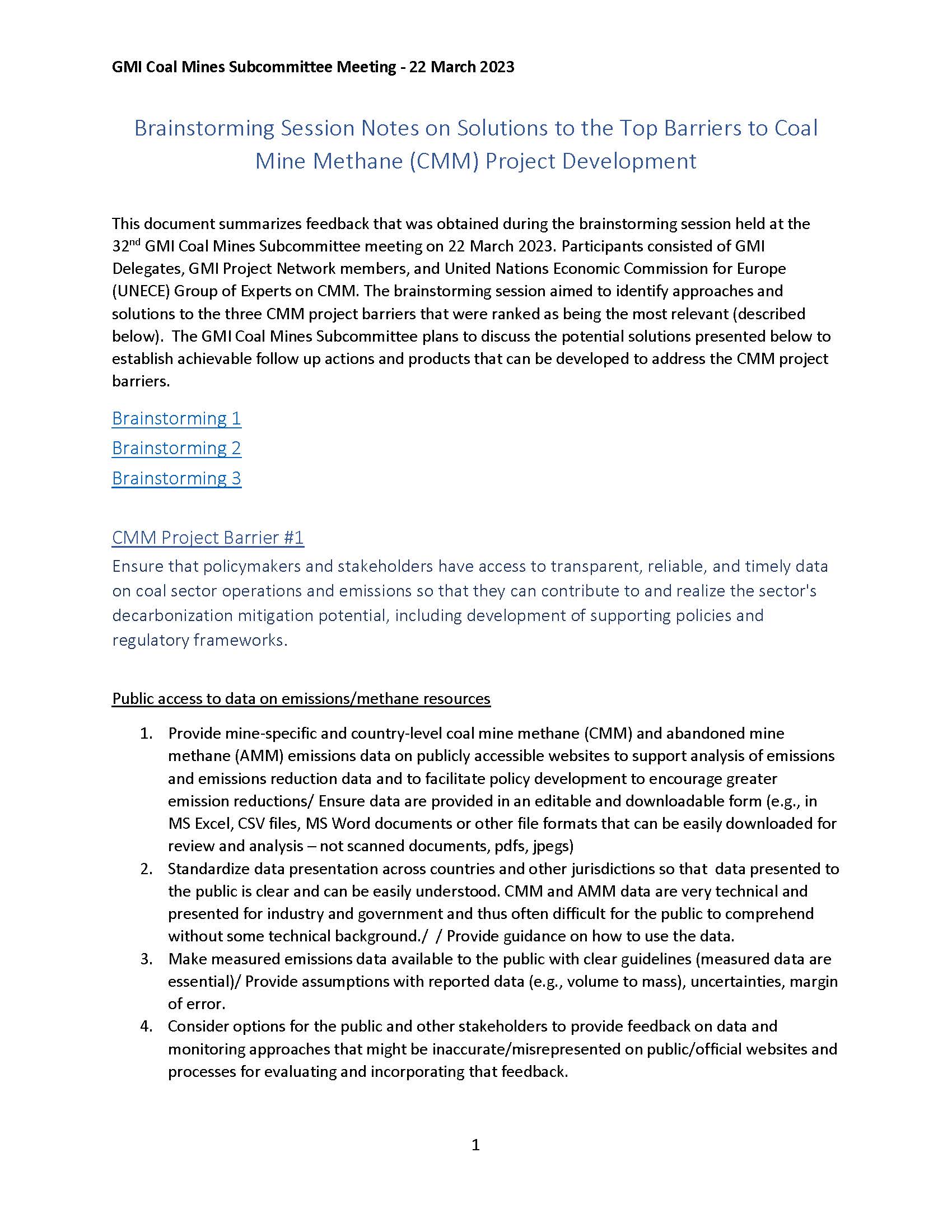
Addressing Top Barriers to Development of Coal Mine Methane Projects: Concrete Ideas from Expert Brainstorming
This document summarizes feedback that was obtained during the brainstorming session held at the 32nd GMI Coal Mines Subcommittee meeting on 22 March 2023. Participants consisted of GMI Delegates, GMI Project Network members, and United Nations Economic Commission for Europe (UNECE) Group of Experts on CMM. The brainstorming session aimed to identify approaches and solutions to the three CMM project barriers that were ranked as being the most relevant.
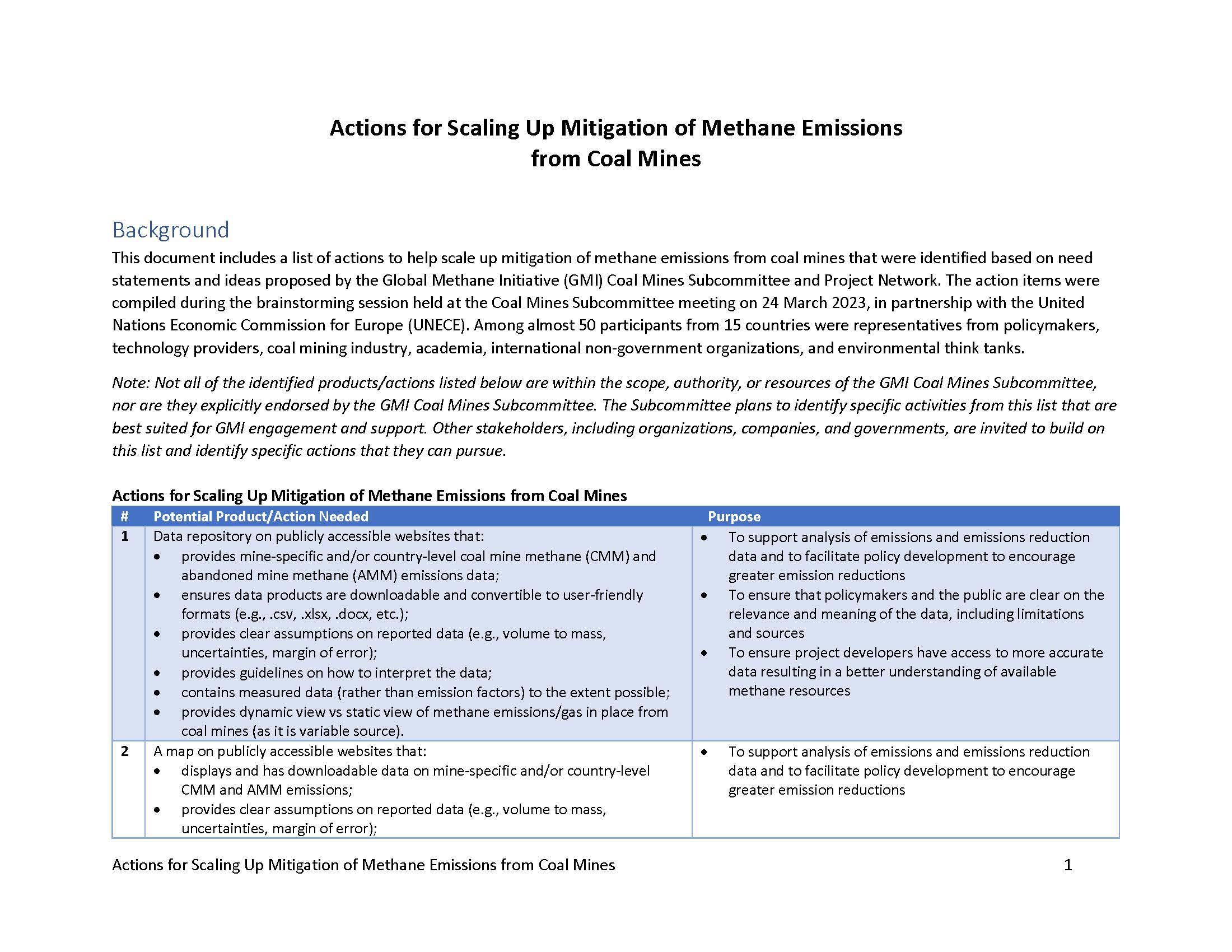
Actions for Scaling Up Mitigation of Methane Emissions from Coal Mines
This document provides a list of concrete ideas for actions that could scale up projects on the capture and use of methane at coal mines. The list is based on need statements and ideas proposed during the 21-22 March 2023 GMI Coal Mines Subcommittee meeting, held in partnership with the United Nations Economic Commission for Europe (UNECE). Nearly 50 representatives from 15 countries attended the Subcommittee meeting, including policymakers, technology providers, coal mining industry, academia, international non-government organizations, and environmental think tanks. Participants brainstormed potential solutions (notes available here) to top barriers to mitigating coal mine methane, identified at a prior meeting on September 27, 2022 (notes available here). The Coal Mines Subcommittee subsequently reviewed the list of ideas to prioritize actions GMI could focus on to most effectively address barriers in the coal sector.
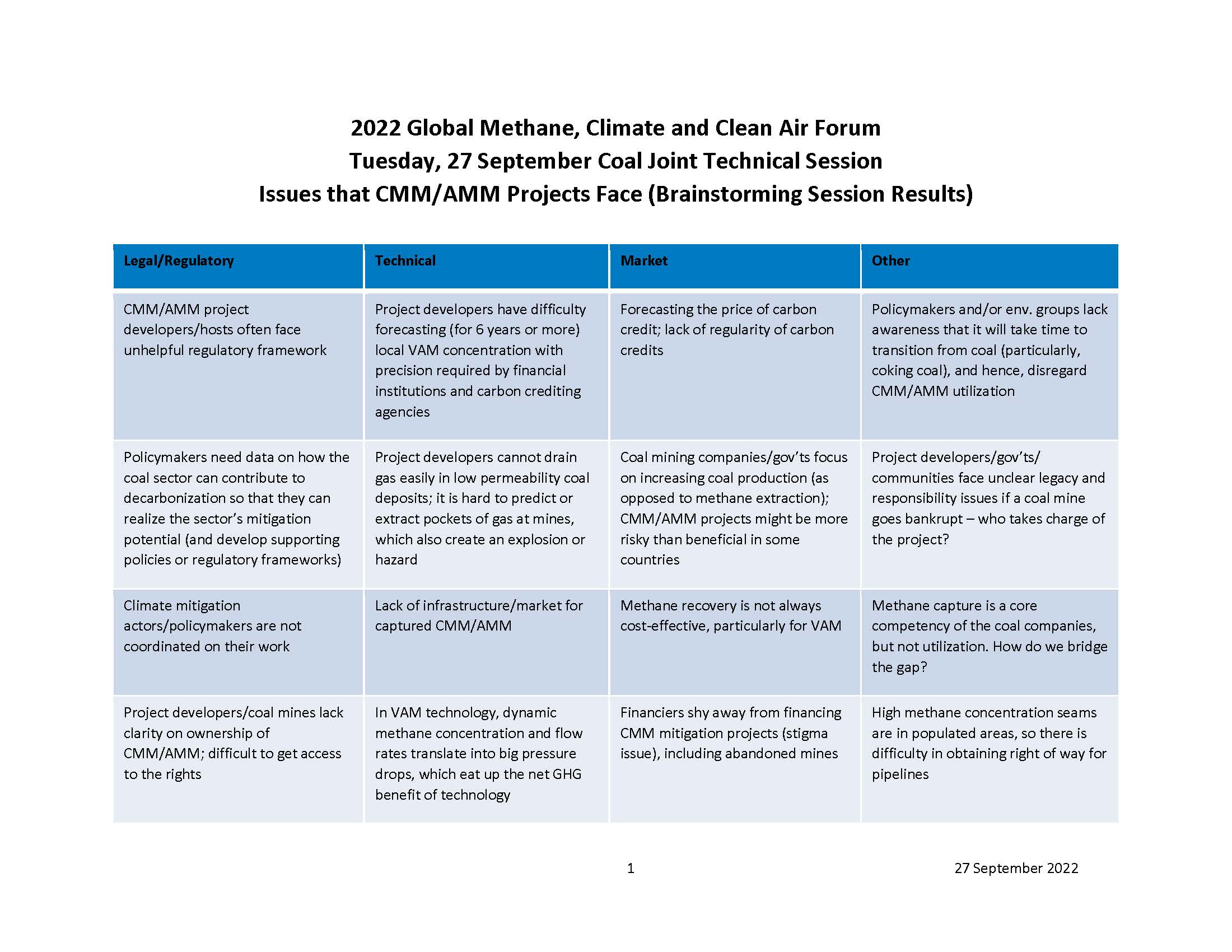
Brainstorming Session Notes on Issues that CMM/AMM Projects Face
This document summarizes notes from a brainstorming session to discuss issues that Coal Mine Methane/Abandoned Mine Methane projects face that was held at the 2022 Global Methane, Climate and Clean Air Forum on 27 September 2022.
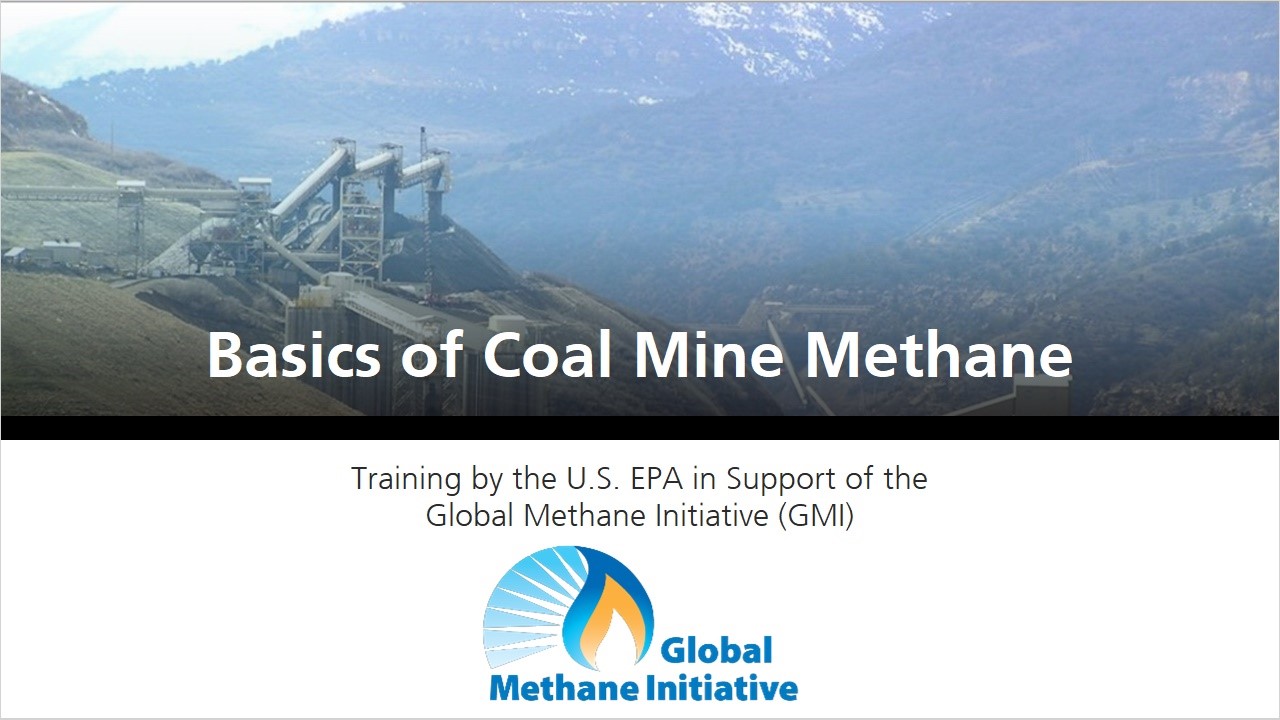
Basics of Coal Mine Methane Training
This training provides basic information about methane that is emitted through coal mining and summarizes potential mitigation options.
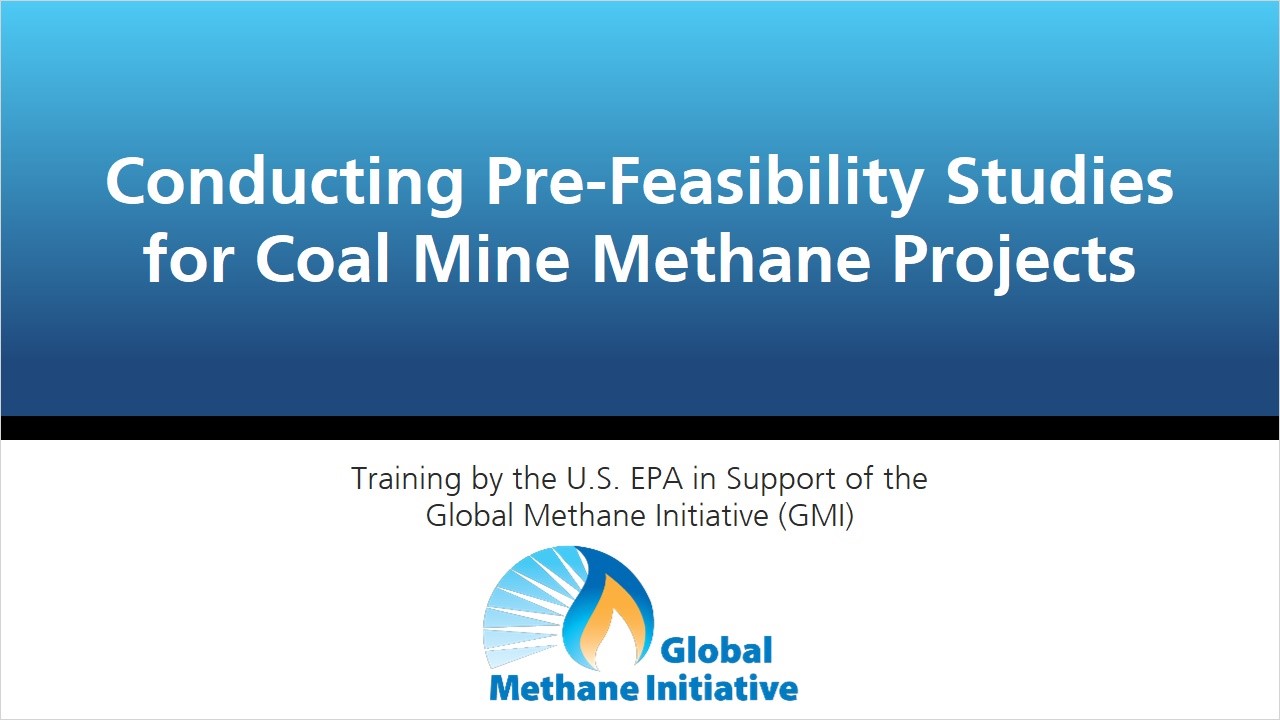
Conducting Pre-Feasibility Studies for Coal Mine Methane Projects Training
This course introduces principles for assessing the potential of developing projects to capture and/or use Coal Mine Methane (CMM).
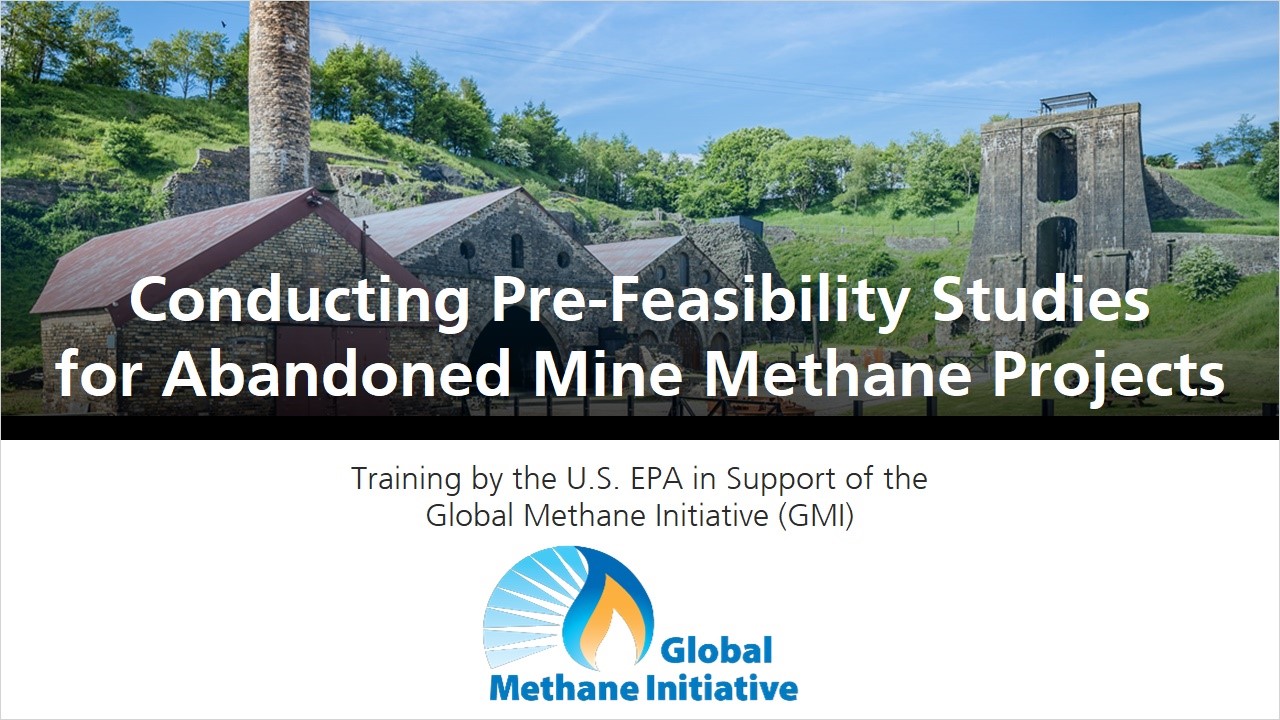
Conducting Pre-Feasibility Studies for Abandoned Mine Methane Projects Training
This course introduces principles for assessing the potential of developing projects to mitigate Abandoned Mine Methane.

Best Practice Guidance on Ventilation Air Methane (VAM) Mitigation
The “Best Practice Guidance on Ventilation Air Methane (VAM) Mitigation” report, developed by the United Nations Economic Commission for Europe (UNECE) Group of Experts on Coal Mine Methane and Just Transition, sheds light on the urgency of tackling VAM emissions. It highlights the cost-effectiveness of VAM mitigation, noting that advanced technologies, such as Regenerative Thermal Oxidation (RTO), have been successfully deployed in large-scale, long-term projects, proving the technical viability of VAM mitigation.
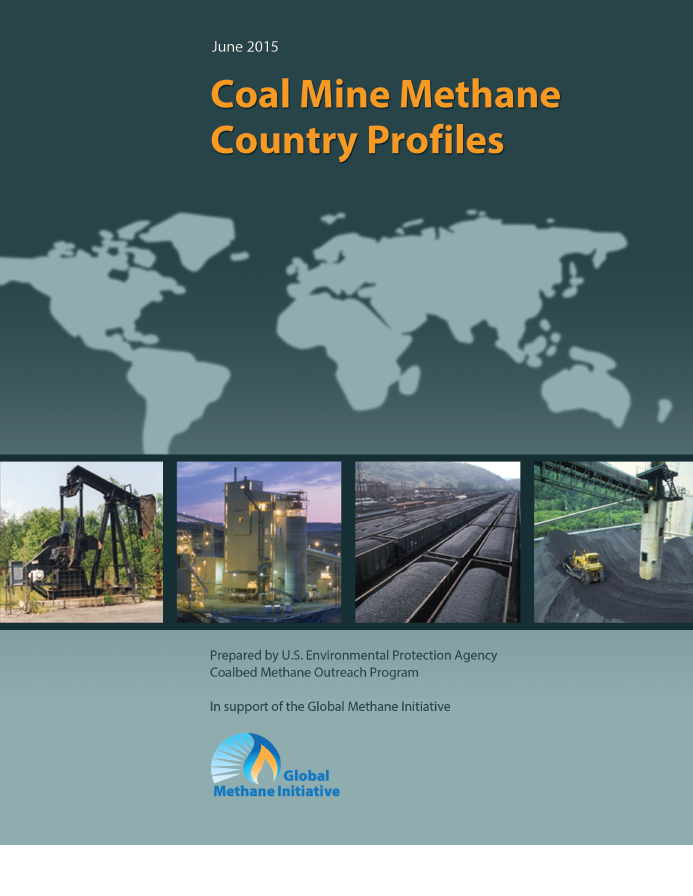
Coal Mine Methane Country Profiles
The fourth edition of the Coal Mine Methane Country Profiles (formerly the Coal Mine Methane Global Overview) was published in June 2015. It contains individual, comprehensive profiles that characterize the coal and coal mine methane sectors of 37 countries—29 Global Methane Initiative partners and an additional eight coal-producing nations. The Executive Summary provides summary tables that include statistics on coal reserves, coal production, methane emissions, and CMM project activity.
